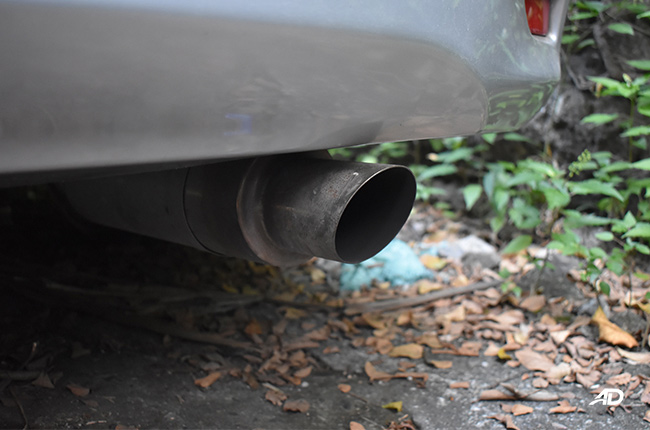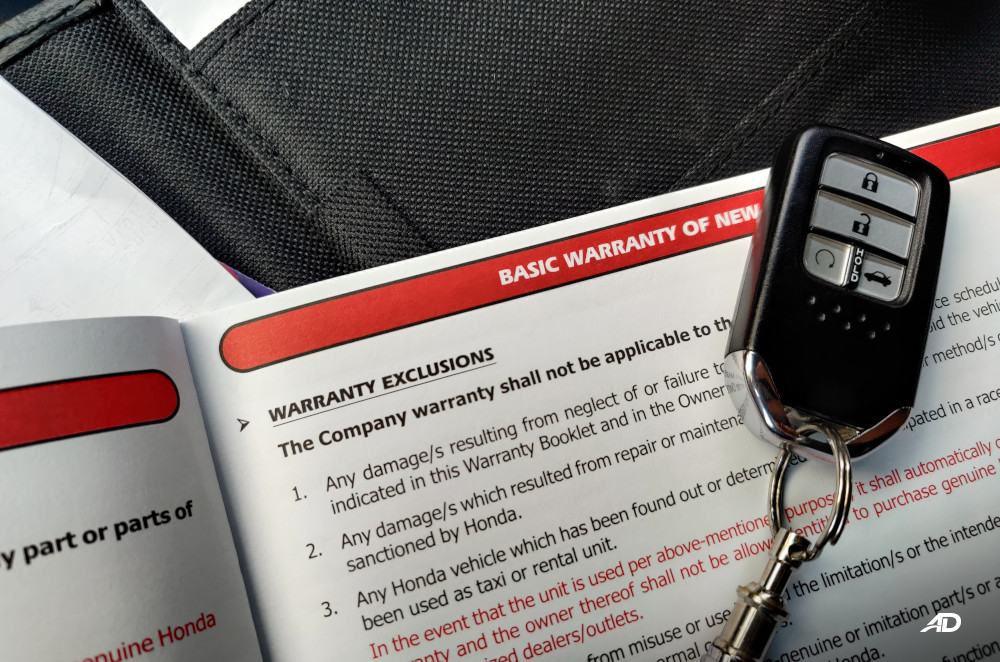
When it comes to getting the most power out of your vehicle, one of the most popular modifications that can be done is to improve the exhaust system. Note that when we say aftermarket exhaust, we mean an exhaust system, meaning the set of pipes, catalytic converters, and mufflers that directs exhaust gasses away from your engine and cabin. With that said, here are a few pros and cons you will encounter when you will modify your car’s exhaust system.
Disclaimer
While there are several pros that are associated with changing out your stock exhaust system, note that this will void your vehicle’s warranty, as tampering with a system as sensitive as your exhaust might give you problems with your engine that would have run fine without modification. On top of that, we cannot assure that all cars will experience gains, nor will they deliver the pros listed in this article. Do research to the best of your ability before doing this modification. Go to reputable shops and go for good brands so you’re assured of quality and know-how to make the most of your mod.
Types of exhaust modification

If you are intent on buying an aftermarket exhaust system, here are the common types you will encounter:
-
Axle-back: these replace the stock exhaust system from the rear axle of your car all the way to the muffler.
-
Cat-back: these replace the stock exhaust system from your car’s catalytic converter to the muffler at the back
-
Header-back/Full exhaust: these replace the entire exhaust system of your vehicle.
Each of these types of exhaust systems will give you varying degrees of gains depending on the vehicle. For certain models, it might not net you any extra power, while in other, significant gains can be had. It is important to do research to see which one is best suited for your vehicle and your intended purpose for it.
The PROs
Starting off with the pros there are few things that can be gained by switching out your vehicle’s old exhaust system. It is important to note, that for most vehicles, the stock exhaust is built to be restrictive but work well with the engine so that it can meet the strict environmental standards that have been set up for modern vehicles.

Improved power
Depending on what parts you add or switch out for an aftermarket exhaust system, you can expect to see several gains. The first of which is usually improved power. As mentioned earlier standard exhaust systems are restrictive in nature, having an aftermarket system will allow your car to ‘breathe’ better. This creates more room for more fuel and air intake, leading to more power.
Aftermarket exhaust systems can also reduce the backpressure of your engine which reduces the stifling effect. It is important to note that backpressure isn’t bad for your engine and that some of it is still needed in order to keep your engine’s air-fuel-ratio as optimal as possible. Backpressure can also aid your vehicle when it comes to its torque output, too little of it and you lose power and torque, while too much of it can also have the same effect. This is why there is a balancing act needed in order for your car to get improved power output without sacrificing too much backpressure.
That being said, without good research and a good understanding of your car, installing an exhaust can either give you a bit more power, reduce the power output of your engine, or net you no results. Less restriction doesn’t mean that you will get more power, you might have to supplement a full exhaust system with a couple of other mods as well like an ECU tune.

Better fuel economy
This works on a case-to-case basis as some manufacturers have already tuned their exhaust systems to maximize fuel efficiency and work efficiently given the stock form. Changing this in any way might make your vehicle consume more gas, and perhaps increase its power output. A well-tuned system will allow your engine to produce more power and torque, which means you won’t have to step on the accelerator more. It also allows you to reduce the energy wasted in the exhaust system to overcome pressure problems which leads to better efficiency and fuel economy. Lastly, stock exhaust systems are usually heavy, and installing an aftermarket pipe can reduce the weight of your vehicle.

Better sound
While this can be subjective and different from vehicle to vehicle, an aftermarket exhaust system can also give your vehicle a better sound. It does this by allowing the sound of your engine to come out unrestricted. Most modern mufflers are quite complex and heavy, which means that the sound gets to your ears, and the ears of other people, unimpeded. Some may not like this, but for many car enthusiasts, this is a delight as it allows the engine’s sound to become more apparent.
The CONs
Having an aftermarket exhaust system, despite it increasing your vehicle’s power, does have its drawbacks. Here are the following downsides that you might encounter when switching to an aftermarket exhaust.

Negligible power gains
For some vehicles, an aftermarket exhaust system alone won’t be able to net you significant gains in terms of power. For it to work properly and efficiently as possible, an aftermarket ECU or a reflash may be required in order to maximize the possible gains. An example of this is adding an aftermarket exhaust system to a car with a small displacement engine, the motor can only do so much and is limited by its size and stock tune, therefore even with an aftermarket exhaust the gains will be minimal at best.

Sound
While an aftermarket exhaust will give your car and engine a better sound, it can also act as a double-edged sword. Engine noise level is a matter of personal preference, car enthusiasts may prefer a louder sound, but other people may not. If you don’t want a loud car, it is best to not install an aftermarket exhaust system as it won’t make sense for you.
Legalities
When it comes to having an aftermarket exhaust system, especially one done on a budget, you might encounter problems with registering your vehicle. In some cases, some aftermarket exhaust can get you in trouble with the Land Transportation Office (LTO) as it might break certain noise limits that have been put into place for cars. You can even get into trouble with emissions as well, as some exhaust systems remove the catalytic converters in order to let your engine breathe better and give you more power.

Catalytic converters are a standard feature in all modern cars available on the market today. While these devices are restrictive in nature, they serve a purpose that benefits the planet as well as other people. It's the job of the catalytic converter to reduce the number of airborne pollutants coming out of your vehicle. These devices filter about 90% of the gases and turn them into less harmful emissions. With these gone from your vehicle, you may encounter gains, however, your car might no longer meet the emission standards in order to be roadworthy. Something to take note of when choosing your aftermarket exhaust system for your vehicle.

Aftermarket exhausts may void your warranty
Adding an aftermarket exhaust system may also void your warranty if your vehicle is still under it. If you really want to maintain your vehicle warranty you can ask the manufacturer for the scope of the warranty and see if it covers the exhaust. If not, you can order an aftermarket exhaust approved by the manufacturer and have them install it onto your vehicle. In this manner, you will still have a warranty and have the gains associated with an aftermarket exhaust. It is important to note, however, that not all manufacturers have aftermarket parts that you can order from them, so don’t expect them to uphold your vehicle’s warranty if you decide to void it.
Should you get an aftermarket exhaust system for your car?

This ultimately boils down to your intended purpose for your vehicle and your personal preference. If you intend to participate in motorsport events and don’t mind the downsides of having an aftermarket exhaust then by all means go ahead and get one.
However, if you just want a little more power from your daily driver and don’t like the sound of a noisy car, then we advise you not to get one. Manufacturers have already designed vehicles to be as efficient as possible all while remaining legal and environmentally friendly as well. They have also put careful research into their vehicles making sure that the engines available with them match the needs of the markets that they are being sold in.
That being said, if you want a bit of sound, consider an axle-back exhaust system. You will eliminate the muffler, but you will gain a bit of sound and grunt from your engine. The power gains will be minimal. However, the sound and other requirements your car needs to pass will depend on the exhaust system’s designer. If you are gunning for a full system, try to retain your catalytic converters, or get high-flow units, get a resonator, and a good muffler so you derestrict your engine, pass the legal sound tests, and meet environmental standards.
Latest Features
-
How to prepare your car for the Holidays / Featured Article
Here are our handy tips on how to keep you on the road and stress free this holiday season.
-
An all-electric future: The Porsche Macan Electric / Featured Article
Porsche’s Macan goes all-electric; it’s a new beast with an electrified heart, yet unmistakably Porsche in performance and spirit.
-
Which Kia should I buy? / Featured Article
We’re here to help you decide which Kia vehicle is best for you, whether it’s a sedan, crossover, or minivan.
Popular Articles
-
Electric Vehicles in the Philippines for under P1 million
Jerome Tresvalles · Aug 19, 2025
-
Top 3 Cars For Every Lifestyle—What Cars Are Right For You? | Behind a Desk
Caco Tirona · Apr 24, 2024
-
5 Tips to Maximize Fuel Efficiency
Jerome Tresvalles · Sep 09, 2024
-
Five driving habits that are draining your fuel tank
Jerome Tresvalles · Jun 24, 2025
-
Can engine braking harm your engine?
Jerome Tresvalles · Sep 11, 2025
-
Do electric cars even need maintenance?
Jerome Tresvalles · Oct 23, 2024
-
Best vehicles for an active outdoor lifestyle
Shaynah Miranda · Jul 25, 2024
-
How to drive different types of vehicle transmissions
May 23, 2024
-
5 easy ways to keep your car interior clean
Allysa Mae Zulueta · Nov 15, 2021
-
How to survive Metro Manila traffic
Earl Lee · Aug 16, 2022



